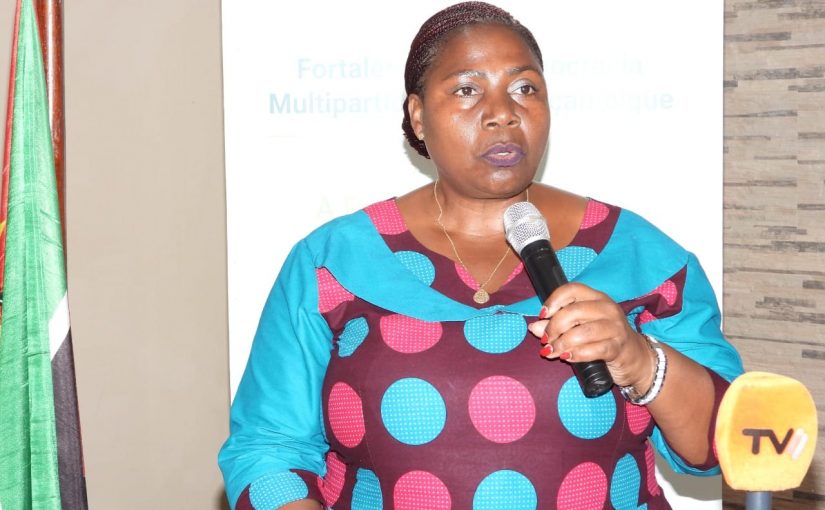Mozambique: Meet the 18 members of the Technical Committee for the Inclusive Political Dialogue
Manica: governor calls for more sustainable practices in the exploitation of natural resources

Photo: IMD - Instituto para Democracia Multipartidária
The governor of Mozambique’s central province of Manica, Francisca Tomás, calls on all communities to use more sustainable practices for the exploitation of natural resources.
Tomas warns that in most cases exploitation of natural resources is made using practices harmful to the environment, citing as an example failure to replace felled trees and artisanal mining using poisonous chemicals.
“This problem is very serious in our province. Many rivers are polluted and the population cannot use water from the rivers. This water is even unfit for animals to drink. Even for agricultural irrigation is inadequate. We want the involvement of everyone in the awareness campaign to eliminate this problem”, said the governor.
Francisca Tomás expressed her concerns recently in Chimoio during a capacity building seminar for members of the provincial executive council and State representatives in Manica province.
The seminar was organised by the Institute for Multi-Party Democracy (IMD), a non-government organisation.
Addressing particularly the case of mineral resources, the governor stressed that gold mining is the worst in terms of damage caused to the environment.
In Manica, gold mining is common in the districts of Manica, Báruè, Macossa and Sussundenga. Most artisanal miners extract gold by intentionally ignoring basic techniques to protect the environment. Revue, Pungoe, Nhancuarara are the most polluted rivers in Manica.
The governor expressed her belief that the training will provide government representatives better tools and knowledge that will be passed on to artisanal miners for more responsible exploitation of natural resources.
“We are well aware that these resources are finite. That’s the reason they must be protected and well preserved with the future generations in mind”, she said.
She assured that the government is doing its part, which is to raise awareness among the miners. “But that’s not enough. It is necessary to teach them how to mine gold using the best techniques available,” she added.
“We have learned from international experience that finite resources can be a path for the development of communities when exploited in a sustainable manner,” she declared.
Currently, there are in Manica over 20 associations of artisanal miners, in addition to mining companies engaged in the exploitation of mineral resources such as gold, tourmaline and other precious stones.
Osman Ali Cossing, from IMD, which organised the training seminar, said that one of the objectives of his institution is to contribute to prevent river pollution caused by exploration of natural resources.
“We are trying to lessen the damage caused by artisanal mining. We could achieve this with the commitment of all those involved in this activity and by teaching artisanal miners the best techniques for sustainable mining. We expect the government representatives to pass on to others what they have learned during this training session.
Mineral resources abound in Manica, particularly precious stones and gold. Those involved in mining include Mozambican nationals and foreign citizens, most of them from neighbouring countries, particularly Tanzania.
Often unscrupulous parents and guardians use their children in mining to the detriment of their studies.













Leave a Reply
Be the First to Comment!
You must be logged in to post a comment.
You must be logged in to post a comment.